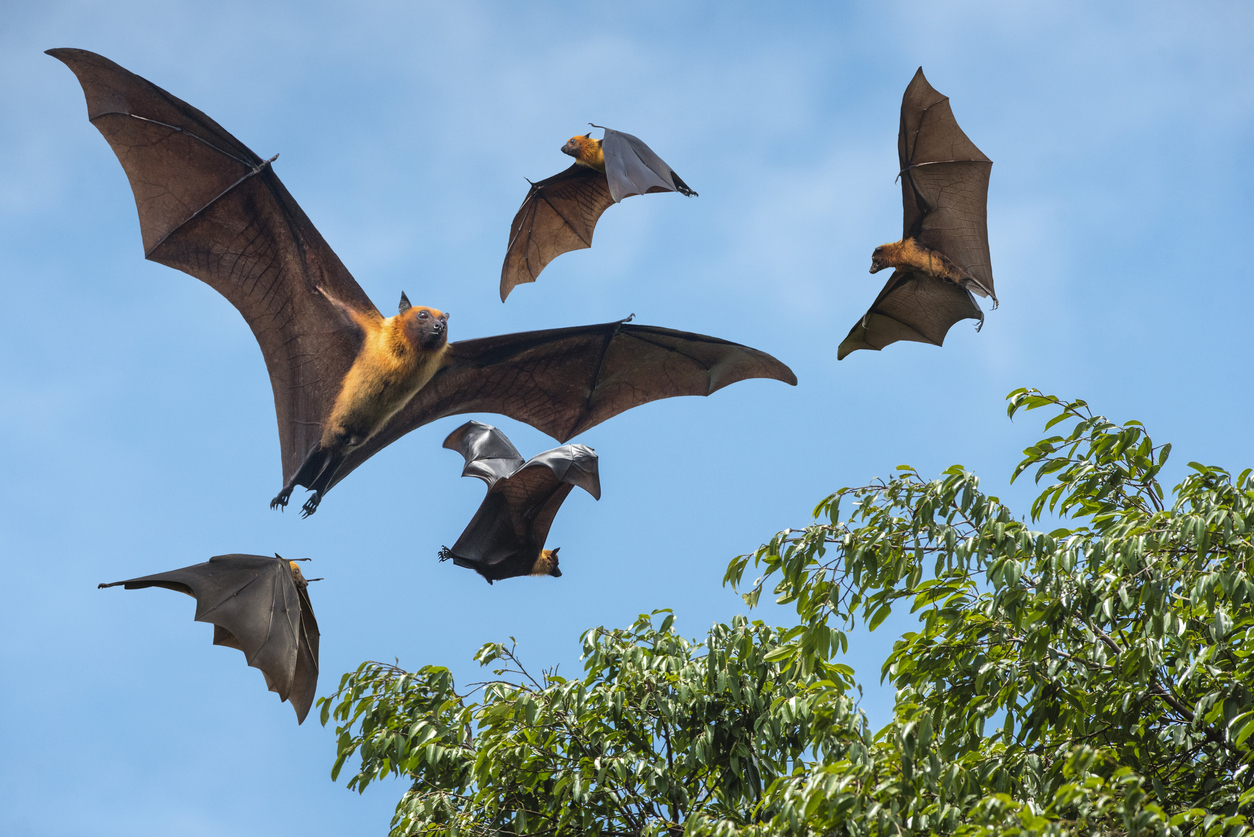Vampire bats will throw up their food to help feed other hungry bats


A free daily email with the biggest news stories of the day – and the best features from TheWeek.com
You are now subscribed
Your newsletter sign-up was successful
Vampire bats might be a little friendlier than their namesake.
An Ohio State University study published Thursday revealed the bats will form social bonds and help one another when they are in need. But the relationships weren't just due to their captive circumstances, they lasted even after they were released into the wild.
The study, published in Current Biology, involved 23 bats which were held in captivity for nearly two years. To encourage bonding, some bats were not given food. In response, others would regurgitate their "blood meals" to share with those who had none.
The Week
Escape your echo chamber. Get the facts behind the news, plus analysis from multiple perspectives.

Sign up for The Week's Free Newsletters
From our morning news briefing to a weekly Good News Newsletter, get the best of The Week delivered directly to your inbox.
From our morning news briefing to a weekly Good News Newsletter, get the best of The Week delivered directly to your inbox.
When they were released into the wild, the bats were fitted with sensors that monitored their proximity to one another. The sensors were also placed on 27 wild bats who were not involved in the captivity portion of the study. Scientists tracked their activity for eight days.
The test bats remained closer with each other than with the wild bats, and their bonds were stronger than bonds wild bats had with one another. This means those who became "friends" in captivity, stuck together in the wild.
Not all bats maintained their relationships, but in a press release, co-lead author Gerald Carter equated this to the human experience of friendship after graduating high school. You may stay in touch with some people but not others, depending on personality and shared experiences.
But this type of bond is a rarity in the animal world, as the bats pay a price when they regurgitate their food to help others. Scientists think there may be a long-term benefit to these relationships in vampire bats, but aren't clear on how that would work, Carter said.
A free daily email with the biggest news stories of the day – and the best features from TheWeek.com
"It's pretty rare outside of humans to have behaviors where I'm paying an obvious cost to help you and you're not related to me," Carter said.
Taylor Watson is audience engagement editor for TheWeek.com and a former editorial assistant. She graduated from Syracuse University, with a major in magazine journalism and minors in food studies and nutrition. Taylor has previously written for Runner's World, Vice, and more.
-
 6 of the world’s most accessible destinations
6 of the world’s most accessible destinationsThe Week Recommends Experience all of Berlin, Singapore and Sydney
-
 How the FCC’s ‘equal time’ rule works
How the FCC’s ‘equal time’ rule worksIn the Spotlight The law is at the heart of the Colbert-CBS conflict
-
 What is the endgame in the DHS shutdown?
What is the endgame in the DHS shutdown?Today’s Big Question Democrats want to rein in ICE’s immigration crackdown
-
 ‘One Battle After Another’ wins Critics Choice honors
‘One Battle After Another’ wins Critics Choice honorsSpeed Read Paul Thomas Anderson’s latest film, which stars Leonardo DiCaprio, won best picture at the 31st Critics Choice Awards
-
 Son arrested over killing of Rob and Michele Reiner
Son arrested over killing of Rob and Michele ReinerSpeed Read Nick, the 32-year-old son of Hollywood director Rob Reiner, has been booked for the murder of his parents
-
 Rob Reiner, wife dead in ‘apparent homicide’
Rob Reiner, wife dead in ‘apparent homicide’speed read The Reiners, found in their Los Angeles home, ‘had injuries consistent with being stabbed’
-
 Hungary’s Krasznahorkai wins Nobel for literature
Hungary’s Krasznahorkai wins Nobel for literatureSpeed Read László Krasznahorkai is the author of acclaimed novels like ‘The Melancholy of Resistance’ and ‘Satantango’
-
 Primatologist Jane Goodall dies at 91
Primatologist Jane Goodall dies at 91Speed Read She rose to fame following her groundbreaking field research with chimpanzees
-
 Florida erases rainbow crosswalk at Pulse nightclub
Florida erases rainbow crosswalk at Pulse nightclubSpeed Read The colorful crosswalk was outside the former LGBTQ nightclub where 49 people were killed in a 2016 shooting
-
 Trump says Smithsonian too focused on slavery's ills
Trump says Smithsonian too focused on slavery's illsSpeed Read The president would prefer the museum to highlight 'success,' 'brightness' and 'the future'
-
 Trump to host Kennedy Honors for Kiss, Stallone
Trump to host Kennedy Honors for Kiss, StalloneSpeed Read Actor Sylvester Stallone and the glam-rock band Kiss were among those named as this year's inductees
